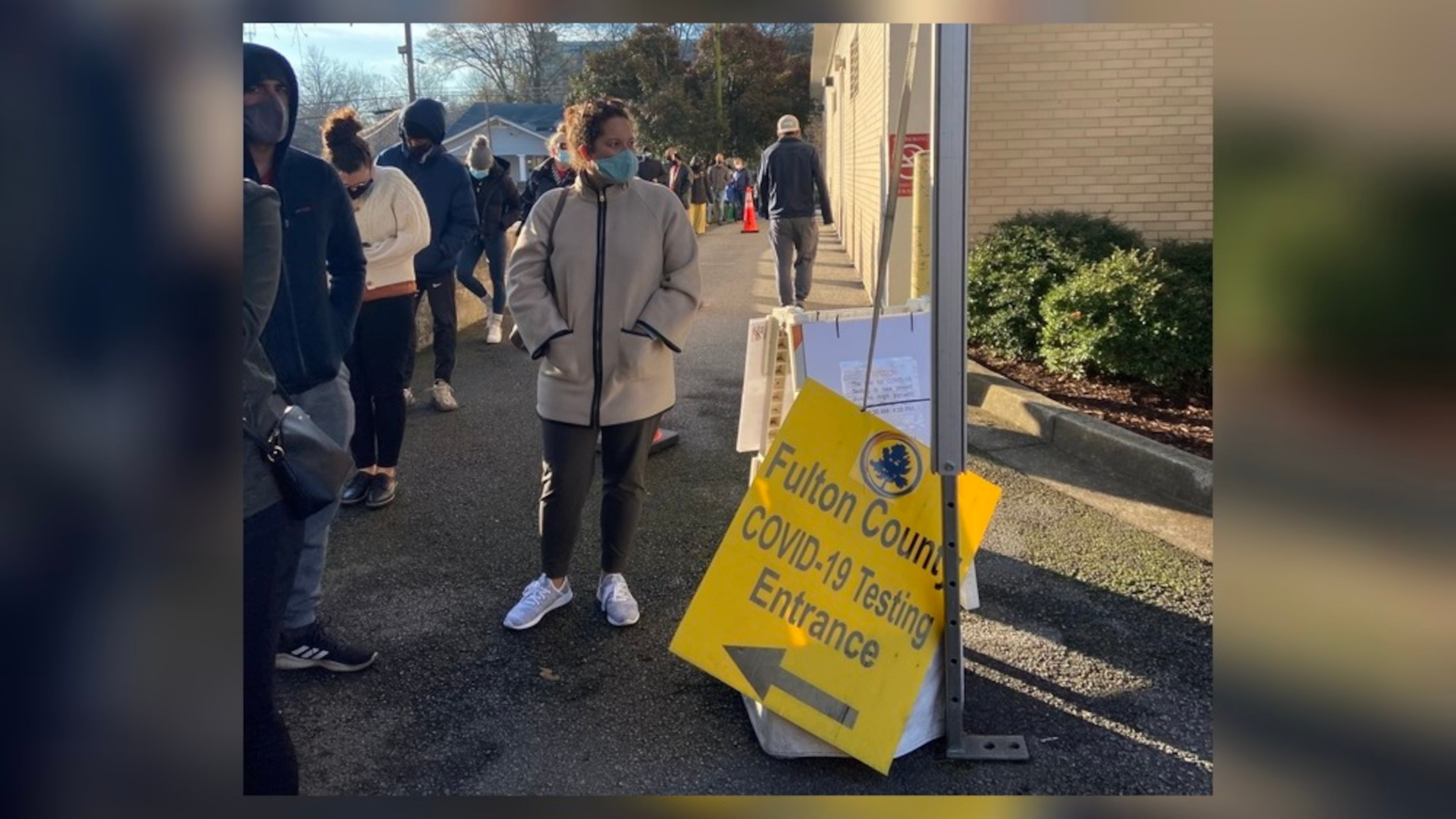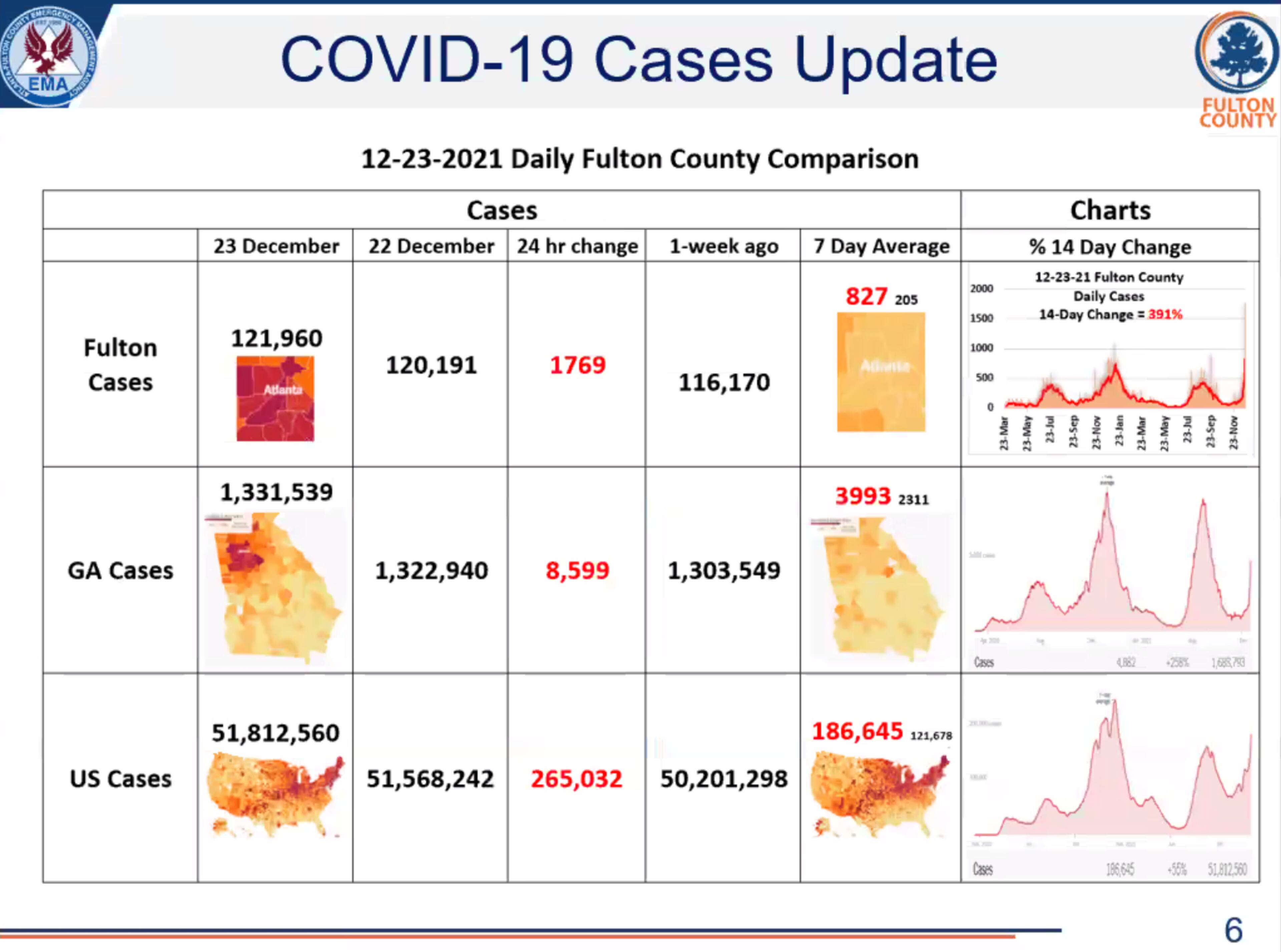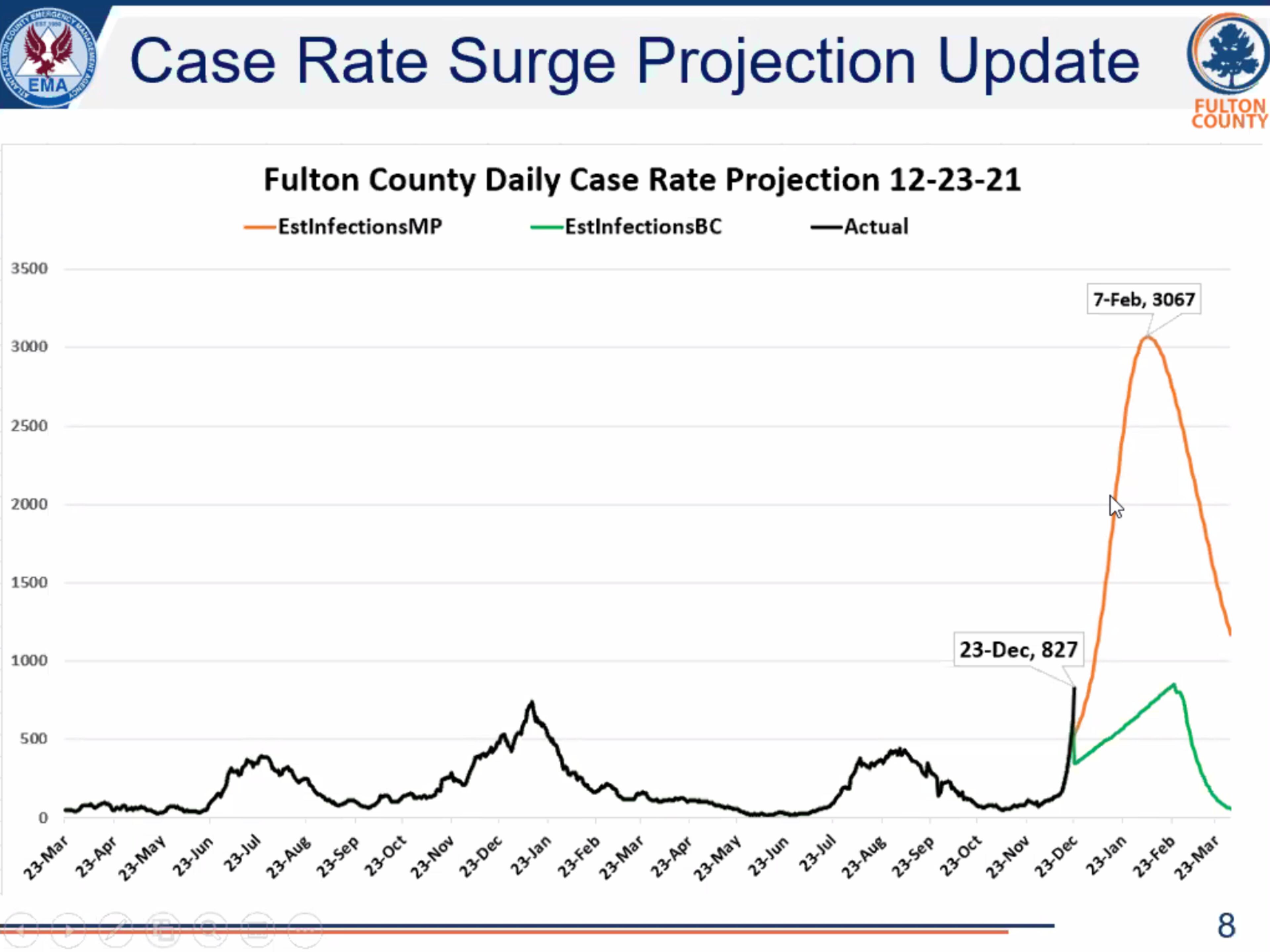Fulton County and its cities reconsider mandates due to ‘dire’ omicron projections

Officials in Fulton County and its cities are considering bringing back mask mandates and gathering restrictions due to the surge of COVID-19 cases in metro Atlanta.
Over the past week, positive cases of COVID-19 have quadrupled in Georgia’s most populous county, with an average of more than 800 cases being reported each day. Over the past 24 hours, Fulton tallied 1,769 cases of COVID-19. The county is at its testing capacity due to staffing shortages and healthcare workers catching the virus themselves, officials say.
County health officials cite holiday travel, frequent gatherings, a lack of mask-wearing and vaccine holdouts for the explosive spread of the virus’ omicron variant. On an emergency virtual meeting Friday morning, the Fulton County Board of Health showed county commissioners and city mayors new projections of omicron’s spread, which don’t show improvement anytime soon.
“As you can see, we are on a bad trajectory,” Dr. Lynn A. Paxton, Fulton’s District Health Director, said on the call. “Make no mistake. Throughout the world, we are starting to see people dying of omicron.”

She recommended that Fulton and its 15 cities reinstate indoor mask mandates and consider canceling, discouraging or banning large gatherings until the surge passes. Atlanta and East Point already brought back their mask mandates, but most other cities have yet to follow suit.
Commissioners voted to close the county’s senior centers next week, and they said they’ll consider the other measures at their first meeting next year.
Paxton said action needs to be taken immediately.
“We know it’s going to be much higher in January,” she said. “That’s why we need to make these changes right now.”
Doug Schuster, planning section chief at Fulton County, said the county’s projections are “some pretty dire forecasts.” The county anticipates more than 150 Fulton residents to die from the omicron variant by April. By February, it’s possible for the county to record more than 3,000 positive cases of COVID-19 each day, dwarfing prior spikes.

The only positives to gleam from the meeting was that hospitalizations have not risen to match the spike in COVID-19 cases, but Paxton said that will inevitably happen when this many people get sick.
Johns Creek Mayor Mike Bodker said he isn’t in favor of mandating masks or measures that go beyond educating the public. He added that he sees a lot of “intellectual dishonesty” from public officials who claim vaccination is the only answer to stopping the spread. He said forcing vaccinations or issuing further mandates will just increase distrust among residents and lead to more harm.
“We’re not done with this, and we’re not going to be done with this for a long time,” he said. “So at a certain point, if we exhaust people fully, we’re going to get worse non-compliance than we have even now.”
Atlanta Mayor-elect Andre Dickens was also on the call and spoke about his COVID-19 case. Despite being fully vaccinated, he tested positive Monday and said he suffered mild cold-like symptoms. He encouraged everyone to get tested often, even if it means they have to wait in lengthy lines or search for-and-wide for an appointment with a private healthcare provider.
“It’s important for people to get tested every three days or so,” he said.
Paxton said the board of health allocated about $800,000 in grant funds to purchase at-home COVID-19 tests to try to plug the gap before more at-home tests become available. President Joe Biden announced this week that he will distribute 500 million free home coronavirus tests, but Paxton said those likely won’t be available until 2022.
She was also adamant that the status quo would not be enough to stop omicron’s surge.
“We are not trying to encourage panic,” she said. “We are trying to cause preparedness.”



